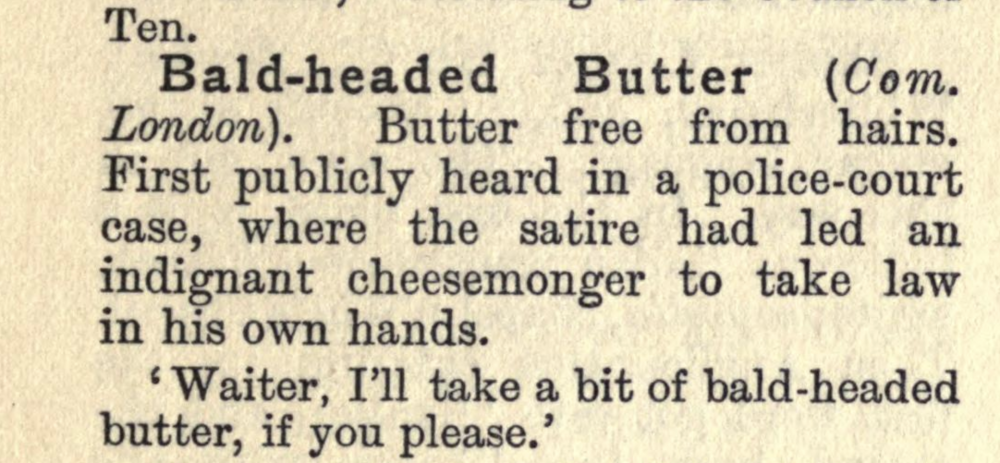
In the introduction to his Dictionary of Contemporary Slang, Tony Thorne writes of the difficulty of defining informal speech: “A symposium on slang held in France in 1989 broke up after several days without having arrived at a definition acceptable to even the majority of participants.” If you’re thinking maybe this seems like taking the subject a little too seriously, I’d agree. But if we travel back eighty years in time and across the English Channel, we’ll meet an eccentric lexicographer who approached the task in the right spirit.
“Here is a numerically weak collection of ‘Passing English.'" writes James Redding Ware in the Preface to his posthumously-published 1909 Passing English of the Victorian Era, A Dictionary of Heterodox English, Slang and Phrase.
“It may be hoped that there are errors on every page, and also that no entry is ‘quite too dull.’” He goes on in a more serious tone to succinctly summarize the rapid language change occurring in England in the last few decades of the 19th c
entury:Thousands of words and phrases in existence in 1870 have drifted away, or changed their forms, or been absorbed, while as many have been added or are being added. ‘Passing English’ ripples from countless sources, forming a river of new language which has its tide and its ebb, while its current brings down new ideas and carries away those that have dribbled out of fashion. Not only is ‘Passing English’ general ; it is local ; often very seasonably local.
Ware—a pen name of British writer Andrew Forrester—goes on to get very local indeed in his descriptions, from “Petty Italia behind Hatton Garden” to “Anglo-Yiddish.” The Public Domain Review highlights the following quirky entries.
Got the Morbs – temporary melancholy
Mutton Shunter – the police
Batty-Fang – to thrash thoroughly
Doing the Bear – courting that involves hugging
Mafficking – getting rowdy in the streets
Orf Chump – no appetite
Poked Up – embarrassed
Nanty Narking – great fun
Ware’s attitude may be appropriately informal, but his methodology is suitably rigorous, and this comprehensive lexicon was clearly a labor of love. His book is a serious resource for scholars of the period, and, hell, it's also just great fun. Read and download the full dictionary at the Internet Archive.
Related Content:
The Very First Written Use of the F Word in English (1528)
Josh Jones is a writer and musician based in Durham, NC. Follow him at @jdmagness
A Witty Dictionary of Victorian Slang (1909) is a post from: Open Culture. Follow us on Facebook, Twitter, and Google Plus, or get our Daily Email. And don't miss our big collections of Free Online Courses, Free Online Movies, Free eBooks, Free Audio Books, Free Foreign Language Lessons, and MOOCs.
from Open Culture https://ift.tt/2XltTRY
via Ilumina
Comments
Post a Comment